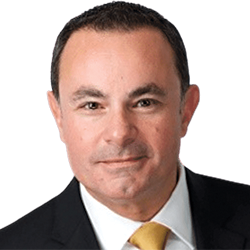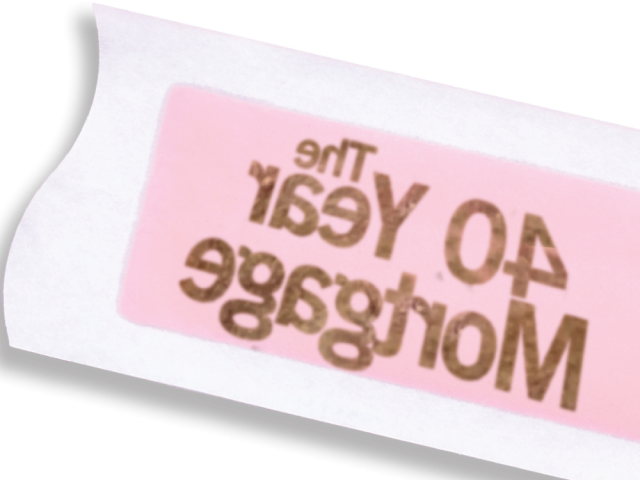While she doesn’t write 40-year mortgages, Middletown, R.I.-based Embrace Home Loans Senior Loan Officer Dawn Ryan also thinks there are benefits to them.
“It could be the difference between qualifying and not qualifying for a mortgage,” she said. “It could also provide ease of mind in managing a monthly payment because it’s lower and, especially, with home prices not dipping, it could provide peace of mind.”
Said Angel Oak’s Winokur: “The 40-year mortgage is one of the ways to help out with affordability issues. We’ve been offering them for at least a couple of years now. People are looking at them more and asking a lot more questions about them than before.”
“It helps make the payments more manageable,” said ACC’s Senko, “The line I’ve always used is that you can’t pay less every month but you can pay more. If someone pays more, it will accelerate the equity position and principal reduction.”
Volatile times make the 40-year mortgage appealing.
“In the current environment, with housing stock lacking and causing the prices of homes to be exorbitant, the more difficult it is for the individual to come up with a down payment,” Cashman said. “We don’t control home prices; we don’t control the interest rate environment, which can make it difficult for someone to get into or stay in a home. The only thing we can do to combat this lack of affordability is time. That’s the reason for the 40-year mortgage.”
As an example, excluding taxes, the monthly payment on a $600,000, 40-year fixed mortgage with a 4.5% interest rate is $2,697.38. In comparison, the monthly payment on the 30-year fixed mortgage for the same amount, with a 5.25% interest rate, also before taxes, is $3,313.22: a difference of nearly $616.
“Anytime you can keep a borrower’s payment down, it definitely helps,” said Sinclair. “If they’re making a low-down payment, a first-time home buyer would also need mortgage insurance on the loan. A lot of times the difference between a 30-year and a 40-year mortgage can absorb the cost of the mortgage insurance for the borrower.”
The 40-year mortgage helps people and communities.
“The impetus for this is two things: we’re very focused on our community and affordable housing and helping people improve their financial well-being,” said Cashman. “Because prices are going up, the next generation is having trouble getting into their first home. This helps people get in place and stay in place.”
Ryan sees the benefits of the 40-year mortgage another way.
“Unlike our grandparents, mortgages are not one and done,” she said. “People do refinance, so the 40-year mortgage might be the way to get into the house.”
Mortgage originators need new loan offerings.
“With the increase in rates, even over the last six months, they (mortgage originators) are looking for more ways to originate loans,” said Bjelac. “If this had rolled out earlier, maybe a couple of years ago, it wouldn’t have been as popular. I think now that rates have risen, and their pipelines are smaller, they’re looking for more ways to qualify borrowers.”
When asked if she would like to offer 40-year mortgages to her clients, Embrace Home Loan’s Ryan replied, “If it helped the customer, certainly.”
Sprout Mortgage’s Thorne said 40-year mortgages offer “great flexibility for many (mortgage) originators, and, thereby, helps them as no other alternative does.”
More interest revenue
While 40-year mortgages take longer to pay back and, thus, require more interest payments compared to the traditional 30-year mortgage, there could be an upside because it means more revenue for the lender. Sprout Mortgage’s Thorne said, “It depends on the time and duration during which the mortgage is outstanding. It truly is a win-win for originators and lenders unless the loan is very short or very long.”
The Cons:
Paying more interest.
Both Ryan and Sinclair described the downside the same way.
“You’ll pay more in interest. But what if a customer makes one extra principal payment a year? They’ll reduce the loan by five-and-a-half years so that the 40-year mortgage isn’t really going to harm them that much more,” Ryan said.
Added Sinclair: “You’re not building up equity as fast as you would with a 30-year, 20-year or a 15-year mortgage. You’re basically working your monthly cash flow to get the lowest payment possible with a 40-year mortgage. So, if you don’t have the discipline to make extra principal payments, you’re not going to build up equity as fast.”
The length of time on the loan
While the length of the loan certainly means more interest payments, Sinclair and Cashman looked at this way:
“I don’t know that today’s borrowers, when they get a mortgage, ever think they’re going to see it through to pay off,” Sinclair said. “For the most part the average life of a loan is five years.”
Said Cashman: “People typically have a mortgage for seven to nine years. This is really a first-time buyer program, but we have borrowers who are all over the place, from those who are older to those who are five or six years out of college.”
The loans aren’t purchased by the GSEs
Freddie Mac spokesperson Angela Waugaman, in an email, wrote, “A 40-year mortgage isn’t a qualified mortgage (and) therefore the GSEs can’t purchase them. We will modify a loan for a distressed borrower to 40 years and did so during the pandemic if it meant the borrower could keep their home and still afford the lowered monthly mortgage.”














